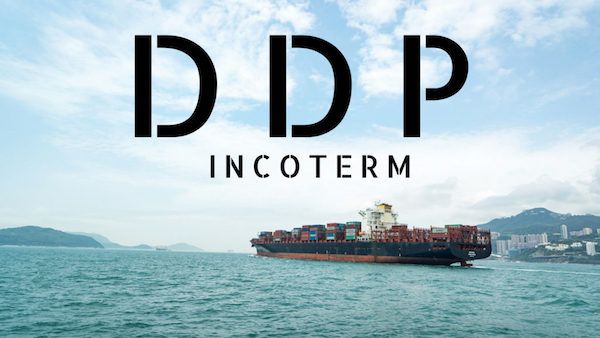Understanding Delivery Duty Paid (DDP)

Delivered Duty Paid (DDP) is one of the most significant and popular Incoterms (International Commercial Terms) rules established by the International Chamber of Commerce (ICC). These terms are globally recognized and define the responsibilities, costs, and risks assumed by buyers and sellers in international transactions.
In simple terms, DDP places the maximum obligation on the seller and the minimum obligation on the buyer. It is the most comprehensive shipping arrangement for the seller, who takes on virtually all responsibility for the goods until they are safely delivered to the final named destination.
The Definition of DDP
The term "Delivered Duty Paid" means that the seller must deliver the goods at the named place of destination, cleared for import, and ready for unloading.
The key element that distinguishes DDP from almost all other Incoterms is the word "Paid," which mandates that the seller must cover all customs duties, taxes, and other official charges payable upon import into the destination country.
Seller’s Extensive Responsibilities Under DDP
When a contract specifies DDP terms, the seller is responsible for the entire journey of the goods, which includes:
1. Transport Costs (Freight): Paying for the main carriage, local transport, and delivery to the final agreed-upon destination.
2. Risk of Loss/Damage: Assuming all risks for the goods until they are delivered to the buyer. The seller is responsible for insurance or covering any loss/damage.
3. Export Clearance: Handling all customs formalities and documentation in the country of origin.
4. Import Clearance: Crucially, the seller must also manage and pay for all import customs formalities, including:
Customs Duties and Tariffs.
Import Taxes (such as VAT or GST) in the destination country.
Any other official fees and charges required for the goods to be legally imported.
5. Documentation: Providing the buyer with the necessary proof of delivery.
Why is DDP Used?
DDP is a popular choice for several strategic reasons, particularly in the B2C e-commerce space:
Superior Customer Experience: For the buyer, DDP offers the smoothest transaction possible. The goods arrive without the recipient having to deal with customs paperwork, unexpected duties, or additional delivery fees, thereby eliminating "sticker shock" and reducing cart abandonment.
Predictable Landed Costs: The buyer knows the total cost of the item upfront, including all shipping and taxes, which greatly simplifies their financial planning and cost of goods calculations.
Maximum Control for Seller: The seller retains control over the entire shipping process, allowing them to select carriers and customs brokers to optimize speed and efficiency.
Risks and Disadvantages for the Seller
While advantageous for the buyer, DDP carries significant risks for the seller:
Maximum Cost and Risk: The seller bears the highest possible costs and risks among all Incoterms.
Uncertainty of Foreign Taxes: The seller must be expertly knowledgeable about the duties, tariffs, and tax laws of the destination country, which can be complex and subject to sudden changes. Any miscalculation can lead to unexpected and high costs for the seller.
Lack of Local Presence: In some countries, the law may require the importer (the entity clearing the goods for import) to have a local legal presence, which can complicate the seller's ability to fulfill the DDP obligation.
In summary, Delivered Duty Paid (DDP) is the ultimate turnkey solution for the buyer. It is a powerful commercial tool for sellers who wish to offer a seamless, all-inclusive delivery service, but it requires thorough knowledge of international logistics, customs regulations, and foreign tax laws to manage the associated risks effectively.